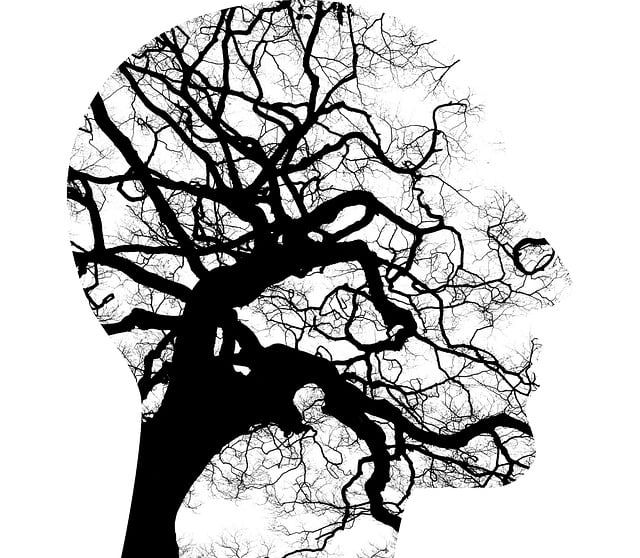Trade worker addiction treatment in Bergen County faces unique challenges due to physically demanding jobs, isolated schedules, and stress. Specialized Employee Assistance Programs (EAPs) tailored for trade workers offer comprehensive support addressing psychological and practical needs, leveraging union networks. These programs help participants achieve long-term sobriety while considering trade-specific circumstances, revolutionizing addiction recovery within these communities. Key components include peer support, flexible scheduling, medical care, mental health services, and early intervention via EAPs and union networks. After completion, access to resources like confidential counseling, peer mentoring, and support groups facilitates lasting recovery.
In Bergen County, the unique challenges faced by union members and trade workers in navigating addiction demand tailored solutions. This article explores specialized addiction recovery programs designed specifically for these individuals, addressing their distinct needs. We delve into understanding the challenges, emphasizing the importance of specialized programs, outlining key components of effective treatment, and highlighting support networks available to foster continuous recovery after completion of formal treatment. By focusing on trade worker addiction treatment, we aim to enhance resources and outcomes for this critical demographic.
- Understanding the Unique Challenges of Trade Workers in Bergen County
- The Importance of Specialized Addiction Recovery Programs
- Key Components of Effective Treatment for Trade Worker Addictions
- Support Networks and Resources for Continuous Recovery After Treatment
Understanding the Unique Challenges of Trade Workers in Bergen County

Trade workers in Bergen County face unique challenges when it comes to addiction and recovery due to their specific work environments and lifestyle demands. Many trade workers, such as construction laborers or skilled craftsmen, often deal with physically demanding jobs that can lead to stress, fatigue, and isolated work schedules. These factors may contribute to an increased risk of substance abuse and make traditional treatment programs less accessible or effective for them.
Furthermore, the nature of blue-collar occupations can create barriers to seeking help. Stigma associated with addiction within certain trade worker communities, along with concerns about job security or potential career setbacks, might deter individuals from enrolling in addiction recovery programs. However, specialized EAP programs tailored for trade workers offer a promising solution, providing comprehensive support that addresses both the psychological and practical aspects of their lives. These programs, often backed by union addiction support networks, are designed to help participants achieve long-term sobriety while considering the unique circumstances present in their trade.
The Importance of Specialized Addiction Recovery Programs

Specialized addiction recovery programs tailored for trade workers and union members in Bergen County are becoming increasingly crucial. The unique demands and challenges faced by these individuals often require more than traditional treatment approaches. Trade worker addiction treatment needs to address not only the physical and mental health aspects but also the socio-economic factors, work-life balance issues, and the potential stigma associated with seeking help within their industries.
These specialized programs offer a range of benefits, including tailored support for blue-collar workers’ specific struggles, peer-to-peer connections that resonate with their trade backgrounds, and flexible scheduling to accommodate work commitments. Union addiction support networks and EAP programs play a vital role in promoting early intervention and accessibility to care, fostering a culture of resilience and recovery within these communities.
Key Components of Effective Treatment for Trade Worker Addictions

Addiction among trade workers and union members can stem from a variety of factors unique to their professions, including stress, physical demands, and exposure to dangerous substances. Therefore, effective treatment programs for these individuals must be tailored to address these specific challenges. Key components of successful trade worker addiction treatment include comprehensive medical care that accounts for potential occupational exposures, as well as mental health services to manage underlying conditions like depression or anxiety.
Support from fellow union members and peer-to-peer counseling are also vital elements, fostering a sense of community and understanding within the recovery process. EAP programs (Employee Assistance Programs) specifically designed for blue-collar workers can play a crucial role in providing early intervention and access to treatment before addiction worsens. Ultimately, successful trade worker addiction treatment combines medical expertise, mental health support, peer engagement, and tailored resources to help individuals overcome their addictions and return to fulfilling careers.
Support Networks and Resources for Continuous Recovery After Treatment

After completing a specialized addiction recovery program tailored to their unique needs, trade workers and union members often require ongoing support to maintain long-term sobriety. Fortunately, various resources are available within Bergen County to facilitate this transition and foster continuous recovery. Many employers offer Employee Assistance Programs (EAPs) that provide confidential counseling services and referrals to help employees manage personal issues, including addiction and mental health concerns. These programs can be a valuable asset for trade workers seeking ongoing support post-treatment.
Additionally, local unions and industry associations often have dedicated addiction support initiatives specifically tailored to blue-collar workers. These networks offer peer mentoring, support groups, and resources to help individuals navigate the challenges of recovery and stay on track. By combining professional counseling with peer support, these comprehensive approaches to trade worker addiction treatment enable individuals to build a robust foundation for lasting recovery.
In conclusion, specialized addiction recovery programs tailored to meet the unique needs of union members and trade workers in Bergen County are essential. By addressing the specific challenges these individuals face, including work-related stress, physical demands, and exposure to substances on the job, effective treatment can be provided. These programs, incorporating evidence-based practices and a holistic approach, empower trade workers to overcome addiction and rebuild their lives. With access to supportive networks and resources post-treatment, continuous recovery becomes feasible, leading to healthier, more productive futures for these dedicated professionals.






